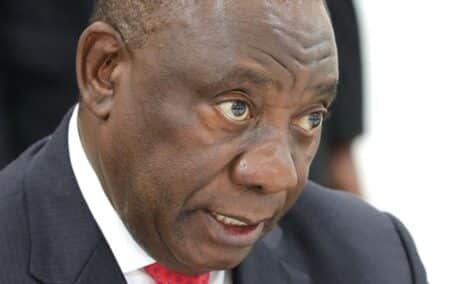President Cyril Ramaphosa has the power to halt the longest economic downturn in South African history, but it would mean ‘overtly pushing back against ideologically motivated, counterproductive policies’, says the Institute of Race Relations (IRR).
He could make a start by announcing in his State of the Nation address (SONA) this week that he will veto the race-based Employment Equity Amendment Bill, which is ‘unconstitutional on at least six grounds that the IRR has pointed out to the Presidency’, the Institute has said in a statement.
Ramaphosa should also ‘implement the Zondo Commission Report’s advice to “maximize value-for-money” by explicitly putting that priority above racial preferences and localisation in all state procurement, which is approaching R1 trillion per annum’.
These are among steps the President could announce, the IRR says, yet, while Ramaphosa ‘has the power to halt South Africa’s downturn, (he) appears to lack the will’.
In its statement, the Institute notes: ‘The State of the Nation could be summed up in one fact from the South African Reserve Bank (SARB), namely that South Africa entered a negative phase in the business cycle in December 2013, and has remained there ever since, making this the longest downturn since records began.
‘However, President Cyril Ramaphosa is unlikely to mention this in his SONA speech. South Africa’s negative business phase, as SARB calculates it, is in its 110th month. The previous longest downward phase was 55 months, from 1989 to 1993. In other words, the current downturn is twice as long as the previous one.
‘Additionally, Ramaphosa has been president for 59 months, which means he has presided over the majority of the current downturn and that his presidency alone, if measured separately from the uninterrupted downturn that began in 2013, would be the second longest downturn on record.
‘Until Ramaphosa’s presidency, South Africa’s longest business phase was a positive one, which began in the spring of 1999 and ended in 2007. In that 99-month upswing, fiscal discipline reduced national debt from roughly 40% of GDP to 25%, 3 million jobs were added, productivity grew by 3 – 5%, inflation plummeted, and living standards improved for tens of millions through boosted consumption.
‘Employment, consumption, productivity, inflation, and fiscal health are some of the factors incorporated in SARB’s complex business cycle evaluation.’
The ‘ZumaPhosa era has halted the progress of the mid-2000s where it did not reverse it’.
‘South Africa now has the highest unemployment recorded anywhere on the planet, productivity per person has not improved in nearly a decade, government debt has almost tripled as a portion of GDP, the cost of living is climbing faster than private wages, and real investment continues to whither.
‘Ramaphosa is sure to promise improvement but is almost certain to make matters worse. The Employment Equity Amendment Bill (EEB), which will allow the government to set public sector-style race quotas across the private sector at pain of ruinous fines, already awaits his signature. It will soon to be joined by the Expropriation Bill, which allows the government to expropriate invaded land without compensation, among other provisions.’
The IRR points out that, regarding the Eskom crisis, in February 2022 the Finance Deputy-Director General, Dondo Mogajane, said ‘we told them they could even sell the two newest stations – Medupi and Kusile – but for some reason, no progress is being made’”.
‘Ramaphosa could use SONA to give his support to selling those stations to pay down Eskom debt and fund the needed maintenance on other stations.’
Whatever the President ‘does (or fails to do) it will be immensely difficult to put a positive spin on SONA2023’.
‘When asked in a randomly sampled survey commissioned by the IRR in 2022 whether their lives had improved in the period since Ramaphosa became president, most respondents said “No”.
‘Ipsos, an international pollster, does multiple surveys in dozens of countries every year on whether respondents believe their country is going in the “right direction” or the “wrong” one. Since Ramaphosa became president, South Africa has had the highest negative answer rate in the world, which is just another way to sum up the State of the Nation that is unlikely to be noted by Ramaphosa this week.’

